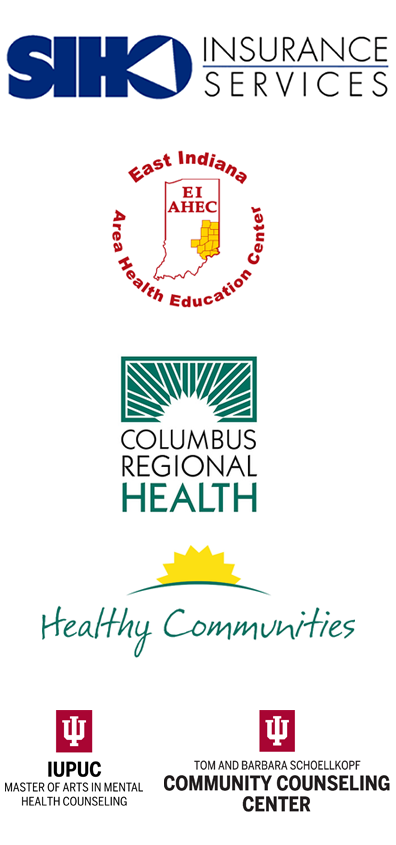EAP Critical Incident Response: Multi-Systemic Resiliency Approach (Workshop Concluded)
This workshop is intended to introduce and prepare mental health professionals as potential responders to the organizational dynamics at play during a crisis. Often, those on site presenting these services are part of an Employee Assistance Program (EAP).
The concept of resilience will be introduced which drives the recovery for individuals to return to pre-traumatic stress levels and potentially achieve post traumatic growth. As professionals we need to understand the process of resiliency and thus understand the crucial elements to achieve successful incident response. Coordinating the four key systems (organization, employee, EAP, and onsite provider) to work synergistically towards an optimal outcome, is what this training provides. It goes beyond the focus of mitigating stress responses to enhance the ability to provide an EAP service that is inclusive of the organizational culture and aligned with resilient focused organizations.
Learning Objectives:
- Create pre-incident partnering opportunities to build organizational resilience.
- Integrate core clinical concepts of stress response, collegial grief, and resilience with practical EAP onsite response.
- Align traditional crisis intervention techniques within the EAP response environment.
- Increase awareness about nuances in organizational cultural.
- Reduce the risk of re-traumatization through a resilience based, group process.
- Design booster trainings to sustain resilience post-incident.
Specific topics addressed during the workshop can be found in this program outline.
Important Facts
Who: Healthcare and mental health care professionals working in South Central Indiana (limit of 30 participants)
When: Wednesday, February 24, 2021 8:30 a.m. – 5:00 p.m.
(times approximate, more detailed schedule to be released shortly)
Cost: There is no cost for this workshop due to generous underwriting by SIHO Insurance Services.
Continuing Education: 6.5 CEUs from Indiana University for Indiana Licensed Marriage and Family Therapists, Mental Health Counselors, Psychologists, and Social Workers.
Materials: A workbook in PDF format will be distributed to each participant.
Instructor
Pam Ruster, ACSW, LCSW, CEAP, Qualified DOT/SAP
 Pam is a certified employee assistance professional (CEAP). Her employee assistance background stems from owning and running Supportive Systems, LLC, an Indiana-based EAP and women business enterprise (WBE) from 1995-2014. Understanding the importance of employee training programs, Pam has become a highly respected trainer designing and presenting a wide-range of workplace trainings focused on leadership, professional development, workplace respect, wellness, and achieving a better balance. In addition, she has been certified to provide Department of Transportation Substance Abuse Professional services for employees who have violated the DOT drug and alcohol policy.
Pam is a certified employee assistance professional (CEAP). Her employee assistance background stems from owning and running Supportive Systems, LLC, an Indiana-based EAP and women business enterprise (WBE) from 1995-2014. Understanding the importance of employee training programs, Pam has become a highly respected trainer designing and presenting a wide-range of workplace trainings focused on leadership, professional development, workplace respect, wellness, and achieving a better balance. In addition, she has been certified to provide Department of Transportation Substance Abuse Professional services for employees who have violated the DOT drug and alcohol policy.
During the past 25 years of providing EAP services, she has responded to over 325 critical incidents impacting the workplace, including suicides, murders, automobile accidents, fatal industrial accidents, and robberies. Pam has successfully worked with numerous organizations to create critical response teams and plans to ensure that organizations are prepared if a crisis occurs. For the last six years, Pam has been training other professionals in critical response.
In January 2015, Pam sold her EAP company and started Pam Ruster Consulting, LLC. Her consulting services provides employers guidance on effective employee programs, workplace violence policies, handling critical incidents, conflict resolution, interactive training programs, and providing management consultations to promote a more positive, productive, and positive workforce. Pam is currently serving as Transition Specialist for Consultant for Centerstone Solutions EAP, with headquarters in Nashiville, TN.
As a dedicated and active employee assistance professional, Pam has served twice on the Executive Committee as the Secretary/Treasurer on the Board of Directors of the International Employee Assistance Professionals Association. She is also a past president of the EAPA Indiana Chapter spanning four years. Pam is a licensed clinical social worker, receiving her Master of Science in Social Work degree from the University of Louisville and a BA in Sociology from the University of Evansville. Before entering the EA profession, Pam worked in child welfare and in health care settings.
Program Outline
Introduction- Resilience Continuum
Building Organizational Resilience
- Trends
- Sources of resilience within organizations
- Subject matter experts
- Improving partnership during response
Multi-Systemic Resiliency Approach
- Resilience Poll
- Clinical Foundation
- Stress Response
- The interpretation of threat
- Physiological indicators
- Collegial Grief
- Grief theory
- Resiliency/Grief groups
- Organizational impact
- Resilience
- Identifying resilient attributes and processes
- The temporal dimensions of resilience
Crisis Intervention
- Historical perspective
- Peer Teams Role
- Psychological First Aid
Employee Assistance Programs
- Dual-client perspective
- Workplace Culture
Interventions
- Management Consultation
- Corporate Briefings
- 1:1
- Resiliency groups
- TeleCIR Covid-19 experiences/learnings
- 1:2
- Outreach
- Handouts
- Referral
Sustaining Resilience
- Follow-up identifiers for resilience
- Strategies to sustain resilience
- Creating booster trainings
Cost of Caring
Q and A
Resilience in Healthcare: Performance, Meaning and Connection (Workshop Concluded)
Resilience is recognized as an important factor in sustained health and performance in the workplace. Recent changes in healthcare delivery, ethics, and technology present both stress and opportunities for personal and career development and finding meaning in one’s work. The role of specific behaviors, values, mindsets and relationships in sustaining resilience is becoming more commonly appreciated. This course will present the state of the field of resilience in Healthcare. It is designed for Nursing Professionals, Physicians, and Pre-hospital Providers, and all those who serve in healthcare today. Interactive exercises will assist in enhancing resilience from multiple perspectives to elicit and teach the skills of resilience. The role of resilience training for new professionals, as well as the role of supervisors, mentors, and preceptors in enhancing resilience will be reviewed. The connection between resilience and expert performance and decision making will be discussed.
Program Highlights:
- The multiple perspectives of resilience in Healthcare
- The Practices of Resilience: Behavior, mindsets, values
- Resilience and performance
- The development of Resilient Professionals
- Supervisors and resilient staff development
- Mentoring / Preceptor strategies for Resilience
- Personal plan for building resilience
- Integration with training / continuing education
Who: Healthcare and mental health care professionals working in South Central Indiana (limit of 50 participants)
When: This workshop was conducted on Wednesday, October 21st, 8:30 a.m. – 5:00 p.m.
Where: Online via Zoom
Cost: There is no cost for this workshop due to generous underwriting by Columbus Regional Health, Healthy Communities.
Continuing Education: 7 Contact Hours: 0.7 General CEUs from University of Maryland, Baltimore County (UMBC) Dept. of Emergency Health Services Professional and Continuing Education (PACE) OR 7 CEUs from Indiana University for Indiana Licensed Marriage and Family Therapists, Mental Health Counselors, Psychologists, and Social Workers. Can be submitted for AMA PRA Category 2 credit.
Instructor
 Victor Welzant, PsyD, is the Director of Education and Training and past member of the Board of Directors of the International Critical Incident Stress Foundation, based in Ellicott City, MD. Victor previously served as Director of Acute Trauma Services for the Sheppard Pratt Health System and as a consultant to the State of Maryland, Department of Health and Mental Hygiene in the area of disaster behavioral health. Victor maintains a private consulting and clinical practice in Towson MD, where he specializes in the treatment of Trauma and Stress related conditions, organizational training, and program development. Victor is the Clinical Director for the Anne Arundel Fire Dept. Critical Incident Stress Management team in MD, as well as a supervisor for the Sheppard Pratt Health Care CISM team development. He is a consultant to the Harford County Maryland Sheriff’s Department’s Crisis Negotiation, and Peer Support teams and serves on the adjunct faculty of Towson University in Psychology, Nursing, and Homeland Security. Victor currently serves on the editorial board of the International Journal of Emergency Mental Health. Victor lectures and consults internationally on the topics Crisis
Victor Welzant, PsyD, is the Director of Education and Training and past member of the Board of Directors of the International Critical Incident Stress Foundation, based in Ellicott City, MD. Victor previously served as Director of Acute Trauma Services for the Sheppard Pratt Health System and as a consultant to the State of Maryland, Department of Health and Mental Hygiene in the area of disaster behavioral health. Victor maintains a private consulting and clinical practice in Towson MD, where he specializes in the treatment of Trauma and Stress related conditions, organizational training, and program development. Victor is the Clinical Director for the Anne Arundel Fire Dept. Critical Incident Stress Management team in MD, as well as a supervisor for the Sheppard Pratt Health Care CISM team development. He is a consultant to the Harford County Maryland Sheriff’s Department’s Crisis Negotiation, and Peer Support teams and serves on the adjunct faculty of Towson University in Psychology, Nursing, and Homeland Security. Victor currently serves on the editorial board of the International Journal of Emergency Mental Health. Victor lectures and consults internationally on the topics Crisis
Group Crisis Intervention (Workshop Concluded)
Designed to present the core elements of a comprehensive, systematic and multi-component crisis intervention curriculum, the Group Crisis Intervention course will prepare participants to understand a wide range of crisis intervention services. Fundamentals of Critical Incident Stress Management (CISM) will be outlined and participants will leave with the knowledge and tools to provide several group crisis interventions, specifically demobilizations, defusings and the Critical Incident Stress Debriefing (CISD). The need for appropriate follow-up services and referrals when necessary will also be discussed.
This course is designed for anyone in the fields of Business & Industry Crisis Intervention, Disaster Response, Education, Emergency Services, Employee Assistance, Healthcare, Homeland Security, Mental Health, Military, Spiritual Care, and Traumatic Stress.
Program Highlights:
- Relevant research findings
- Relevant recommendations for practice
- Incident assessment
- Strategic intervention planning
- “Resistance, resilience, recovery” continuum
- Large group crisis interventions
- Small group crisis interventions
- Adverse outcome associated with crisis intervention
- Reducing risks
- Critical Incident Stress Debriefing (CISD)
Who: First responder, healthcare, mental healthcare, and education professionals working in South Central Indiana (limit of 30 participants)
When: Friday, September 25th and Friday, October 2nd, 8:00 a.m. – 4:00 p.m.
Where: Online via Zoom (Sorry, workshop is full and registration is closed.)
Cost: There is no cost for this workshop due to generous underwriting by East Indiana - Area Health Education Center.
Continuing Education:14 Contact Hours: 1.4 General CEUs from University of Maryland, Baltimore County (UMBC) Dept. of Emergency Health Services Professional and Continuing Education (PACE) OR 14 CEUs from Indiana University for Indiana Licensed Marriage and Family Therapists, Mental Health Counselors, Psychologists, and Social Workers
Instructor
 Jeffrey T. Mitchell, PhD, CCISM is Clinical Professor of Emergency Health Services at the University of Maryland in Baltimore County, Maryland and President Emeritus of the International Critical Incident Stress Foundation. He earned his Ph.D. in Human Development from the University of Maryland. Dr. Mitchell serves on the graduate faculty of UMBC and also has served as a dissertation reviewer for numerous graduate students in international universities when their dissertations were related to emergency personnel. He has presented at conferences in twenty-eight nations around the globe.
Jeffrey T. Mitchell, PhD, CCISM is Clinical Professor of Emergency Health Services at the University of Maryland in Baltimore County, Maryland and President Emeritus of the International Critical Incident Stress Foundation. He earned his Ph.D. in Human Development from the University of Maryland. Dr. Mitchell serves on the graduate faculty of UMBC and also has served as a dissertation reviewer for numerous graduate students in international universities when their dissertations were related to emergency personnel. He has presented at conferences in twenty-eight nations around the globe.
After serving as a firefighter/paramedic, Dr. Mitchell developed a comprehensive, integrated, systematic, and multi-component crisis intervention program called “Critical Incident Stress Management.” He has authored over 275 articles and 19 books in the stress and crisis intervention fields and serves as an adjunct faculty member of the Emergency Management Institute of the Federal Emergency Management Agency. Dr. Mitchell is a reviewer for the Journal of the American Medical Association and the International Journal of Emergency Mental Health. He received the Austrian Red Cross Bronze Medal for his work in Crisis Intervention in the aftermath of the Kaprum Train tunnel fire.
The Association of Traumatic Stress Specialists approved Dr. Mitchell as a Certified Trauma Specialist, and The United Nations appointed him to the United Nations Department of Safety and Security Working Group on Stress. He actively teaches CISM and consults with emergency services, military personnel, hospitals, business and industries on a regular basis.




 Pam is a certified employee assistance professional (CEAP). Her employee assistance background stems from owning and running Supportive Systems, LLC, an Indiana-based EAP and women business enterprise (WBE) from 1995-2014. Understanding the importance of employee training programs, Pam has become a highly respected trainer designing and presenting a wide-range of workplace trainings focused on leadership, professional development, workplace respect, wellness, and achieving a better balance. In addition, she has been certified to provide Department of Transportation Substance Abuse Professional services for employees who have violated the DOT drug and alcohol policy.
Pam is a certified employee assistance professional (CEAP). Her employee assistance background stems from owning and running Supportive Systems, LLC, an Indiana-based EAP and women business enterprise (WBE) from 1995-2014. Understanding the importance of employee training programs, Pam has become a highly respected trainer designing and presenting a wide-range of workplace trainings focused on leadership, professional development, workplace respect, wellness, and achieving a better balance. In addition, she has been certified to provide Department of Transportation Substance Abuse Professional services for employees who have violated the DOT drug and alcohol policy.  Victor Welzant, PsyD,
Victor Welzant, PsyD, Jeffrey T. Mitchell, PhD, CCISM
Jeffrey T. Mitchell, PhD, CCISM